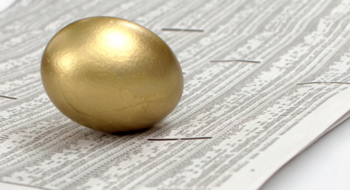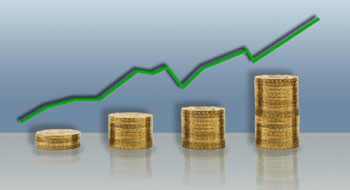

Investors are also showing renewed love for Asia - aside from Japan, Asian emerging markets have drawn investors’ attention as China’s growth outlook improves. That’s coming at the expense of developed equity exchange-traded fund (ETF) exposures - Europe in particular as the region struggles to juice its economy towards growth with little or no luck.


Gold exchange-traded funds (ETFs) lose their predictive power, leveraged gold ETFs under perform, and other must-read stories about ETFs that track this bright, shiny metal.


Canada’s biggest investors haven’t wholeheartedly embraced exchange-traded funds (ETFs), but that could be changing, according to a new survey of institutional ETF use by Greenwich Associates. Tough investment conditions and rising interest rates in particular have increased institutional interest in using ETFs to gain exposure to new asset classes—not just equities.


Institutional investors across Canada are broadening the ways they use exchange-traded funds (ETFs) and embracing more strategic applications for ETFs in their investment portfolios, according to a recent Greenwich Associates study.


“I can’t believe it’s almost over!” That's the universal lament I’ve been hearing ever since the calendar ticked over to August 1. Back-to-school ads are on TV and everyone is turning their minds to September. But summer’s not over yet for exchange-traded funds (ETFs).


The rising cost of futures trading is a challenge for many investors right now and apparently according to Reuters some large institutions—including endowments and sovereign wealth funds—are turning to exchange-traded funds (ETFs) to bring down the cost of trading them.


As investors around the world continue to pour money into exchange-traded funds (ETFs), Canada is following the trend. Last week, BMO Global Asset Management reported that the Canadian ETF market has topped $70 billion—up more than 11% from year-end 2013. And while that’s still a drop in the ocean compared to the $1.1 trillion in Canadian mutual fund assets, there are a few trends bubbling that could mean ETFs gain even more ground in the years to come.


Canada's exchange-traded fund industry is continuing to grow.


iShares has launched a new exchange-traded fund.


How safe is the backup parachute of exchange-traded funds (ETFs)? It’s a question asked by the authors of a new research paper. It’s called “The Collateral Risk of ETFs” and is written by European academics Christophe Hurlin, Grègoire Iseli, Christophe Pèrignon, and Stanley C. H. Yeung the latter two of which are at Paris-based HEC. Their findings might surprise regulators calling the industry out over collateral risk - instead of finding gaping holes in the way the risk is managed, the researchers find that ETFs are actually doing pretty well when it comes to collateralization of their products.